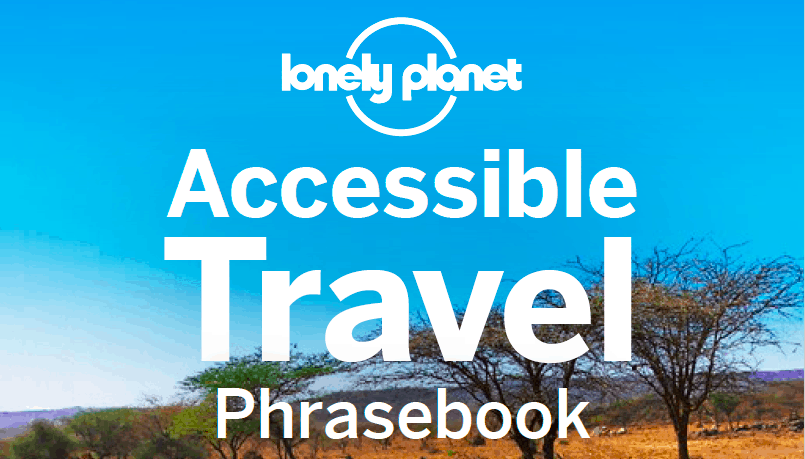
Working with a virtual army of volunteer translators, Lonely Planet’s Martin Heng has created the first-ever accessible phrase book. Accessible Travel Phrase Book features disability-specific words and phrases translated into 35 different languages, pronunciation guides, vocabulary related to hotels and transportation and even food allergies.
With this downloaded onto a traveler’s device, they can ask, Hay escalón en el baño (Are there steps into the bath?) while in Mexico, or, Pues-je visiter La Tour Eiffel en fauteuil roulant (Can I visit the Eiffel Tower in a wheelchair?) when touring Paris.
“All travelers will get more out of their trip by being able to speak a few words of the local language, but for people with disabilities it’s often vital to be able to explain your particular needs,” says Heng, who also has authored the free book, Accessible Online Resources. “Since standard phrasebooks are unlikely to contain the language you use to talk about disability needs, we decided to gather together some disability-specific words and phrases and translate them into as many different languages as we practically could. There are still plenty of barriers to travel for people with a disability — language doesn’t have to be yet another.”
Recent studies have shown that people with disabilities are becoming a larger part of the travel marketplace. Eric Lipp, director of the Open Doors Organization, who authored a 2015 study on the spending and market scope of adult travelers with disabilities in the U.S., says that, “In the past two years alone, more than 26 million adults with disabilities traveled for pleasure and/or business, taking 73 million trips.”
The same can be seen across the world, with a recent report in the United Kingdom estimating revenues from accessible tourism in Europe to reach 88.6 billion Euros (about $104.5 billion in U.S. dollars) annually by 2025.
Heng is hoping that the new phrase book will help further this trend. “We want to help people with access needs to get out into the world and experience the benefits that travel has to offer,” he says. “If this Accessible Travel Phrasebook encourages just a few more people with disabilities to get on the road, we will have taken one more step toward making the benefits of travel accessible to all.”
The Accessible Travel Phrasebook is available for free download at Lonely Planet in a variety of formats, including mobile, tablet and laptop.
Support New MobilityWait! Before you wander off to other parts of the internet, please consider supporting New Mobility. For more than three decades, New Mobility has published groundbreaking content for active wheelchair users. We share practical advice from wheelchair users across the country, review life-changing technology and demand equity in healthcare, travel and all facets of life. But none of this is cheap, easy or profitable. Your support helps us give wheelchair users the resources to build a fulfilling life. |


Recent Comments
David Anderson on Phoenix i is the First Wheelchair with Integrated Power Assist
Dan on Phoenix i is the First Wheelchair with Integrated Power Assist
Andrew Slorance on Phoenix i is the First Wheelchair with Integrated Power Assist